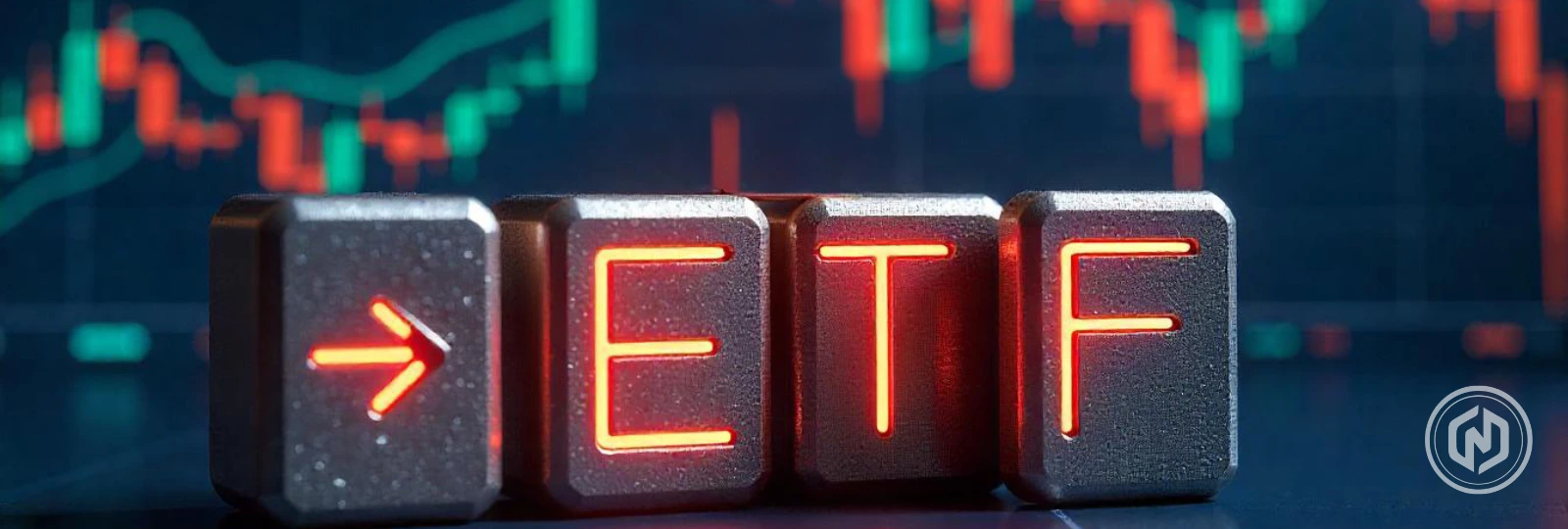Key Highlights
- Hashdex has announced an update in its ETF that now provides exposure to 5 major cryptocurrencies, including Bitcoin, Ethereum, Solana, XRP, and Stellar
- Recent approval from US regulators accelerated ETF approvals, allowing this and other multi-crypto funds to launch quickly on major stock exchanges
- This change will make cryptocurrency investment more accessible
Hashdex has made a big announcement, making it much easier for people in the United States to invest in several popular cryptocurrencies at once. The company has updated one of its investment funds, called the Hashdex Nasdaq Crypto Index US ETF, which uses the stock ticker NCIQ.
We’re delighted to announce that the Hashdex Nasdaq Crypto Index US ETF (Ticker: $NCIQ) Expands, Bringing US Investors Access to Five Leading Crypto Assets ( $BTC, $ETH, $XRP, $SOL, $XLM ) Through One Diversified Product
Read the Press Release: https://t.co/zrDAR7xljG pic.twitter.com/s1OUpx014m
— Hashdex (@hashdex) September 25, 2025
Hashdex Expands First Multi-asset Spot Crypto ETP
This ETF originally held only Bitcoin and Ethereum, but now it has been expanded to include five different digital currencies. This change is seen as a major change in bringing digital money into the mainstream financial world. This will allow people to gain exposure to a diversified basket of crypto assets through a single, simple purchase on a regulated stock exchange, according to the official announcement.
This ETF works like a basket that holds different assets. When you buy a single share of the NCIQ fund, you are essentially buying a small piece of all the cryptocurrencies inside that basket. The new mix inside the basket is carefully balanced based on the size and popularity of each currency.
It now holds roughly 40% Bitcoin, 30% Ethereum, 15% Solana, 10% XRP, and 5% Stellar. This approach helps to spread out risk, so an investor’s money is not dependent on the performance of just one cryptocurrency.
The fund is managed by Hashdex, a pioneer in this field, which works with trusted companies like Coinbase to keep the assets safe.
ETF Approval Accelerates after New Rules
This important expansion was made possible by a recent change in rules from the U.S. Securities and Exchange Commission (SEC). Just a week before this announcement, the SEC approved new, streamlined rules for listing these types of crypto funds on major exchanges like the Nasdaq.
The old process was slow, often taking months to approve each new fund. The new “generic” standards mean that if a cryptocurrency meets certain basic requirements for liquidity and security, the approval process is much faster, cutting the timeline down to just a couple of months. This regulatory shift has effectively opened the floodgates for new investment products.
Hashdex is not alone in this new movement. Another major investment firm, Grayscale, also just launched its own multi-crypto ETF this month, offering exposure to a similar set of currencies. Another new fund focused solely on XRP saw record-breaking trading volume on its first day.
This trend is not limited to the United States, as similar products have already become popular in countries like Canada, Brazil, and Switzerland. It shows a growing global demand from investors who want a simple and familiar way to add digital assets to their portfolios without the technical challenges of direct ownership. For example, Bitcoin ETFs saw an inflow of $241M on Wednesday, September 24.
It simplifies the process of investing in cryptocurrency. Instead of needing to use a special crypto exchange and learn how to securely store digital assets, an investor can now use their regular stock brokerage account to buy shares of the NCIQ fund, just as they would buy shares of a company like Apple or Microsoft.
This opens up the crypto market to a much wider audience, from small retail investors to large institutions like pension funds, who prefer to invest through regulated and familiar channels.
The official documents for the NCIQ fund clearly warn investors that they could lose a significant amount of money. While this new fund offers a safer and more convenient way to invest, it does not eliminate the inherent risks of the asset class. The market remains unpredictable, and prices can be influenced by many factors.


